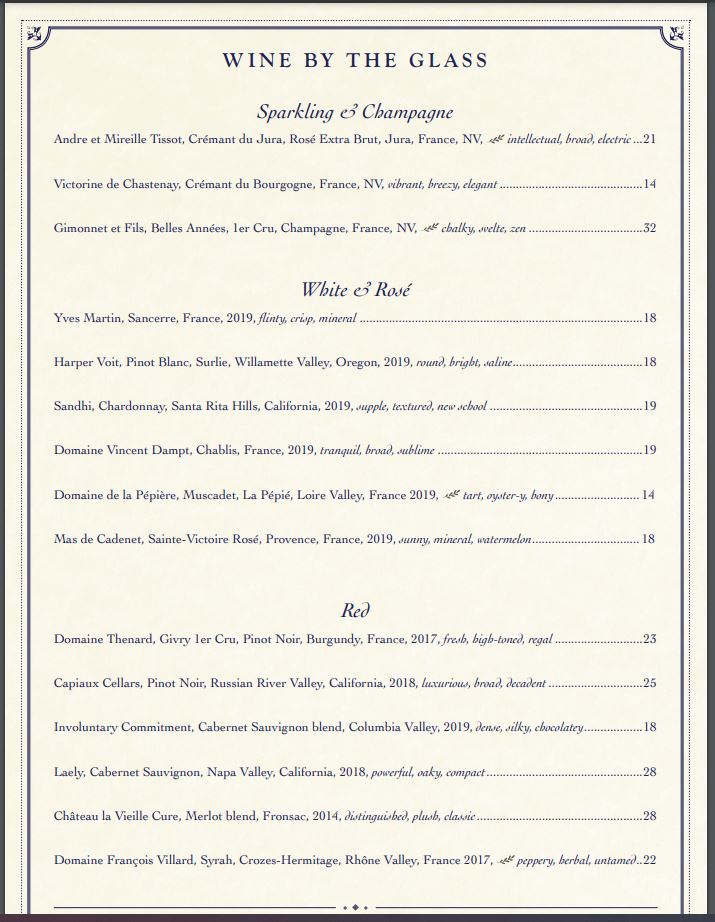Early Bird
Deadline
January 31, 2026
Judging
Date
May 18, 2026
Winners
Announced
June 10, 2026

Wine director for Hogsalt, Chicago, James Bube entered the hospitality industry as a server and bartender at Fogo de Chão. His love for wines took him to Heritage Wine Cellars, where he spent over 2 years in wholesale. Not long after he joined, Bube ran the key accounts and education for the company.
At Hogsalt, Bube continues to build an exemplary wine list, with the main focus on having his guests coming back for more.
I'm Wine Director for the country. I make day-to-day decisions in our Chicago restaurants where we're based, focusing on securing products of high quality at prices that work for our restaurants and for our suppliers. Education is a large and usually daily part of my role with the company making sure all our servers are comfortable discussing our selections with our guests.
I assist our beverage managers in Las Vegas and New York with selecting wines and in understanding the underlying ethos propelling our company culture allowing them autonomy to respond to their individual markets.
I'd inquire about which categories are the issue for turnover. Sometimes you just need to move through something that's not resonating with your clientele whether it's selling it to staff, opening a bottle for education, or pouring it by the glass.
For the fancy stuff, we've modified our margins for blue-chip wines in many of our restaurants as we don't want to act as museums and work with our finance department to understand lower margins sometimes equates to more money coming into the restaurant. Further, we've found running half-priced wine on slower days of the week both help drive business to other revenue streams of our business and potentially attract new guests.
This differs on your market so your mileage may vary here, don’t forget to check your local laws! Where there are deals on quantity or "family plans," you can lower your overall cost if you're going to "partner" with a given supplier be it locally or nationally. Ultimately understanding that your vendors are generally only compensated by sales, managing expectations, and being realistic with what you may be able to deliver is very important.
Many suppliers have budgets for events and to an extent, you can establish your venue as a place to potentially hold a trade tasting (can't wait for these to come back again!). You can generate revenue when your establishment may otherwise be dark and get others in the industry more comfortable with your brand.

Profitability of the program, availability of a product, staff knowledge, and vendor relations.
Inevitably it's the vanity purchases. There are so many great people in the industry who deserve and need support in the form of purchases by the trade. But to purchase an item without a clear plan, to sell it is a disservice to your employer may cause more harm than good for the supplier whose wine is viewed as a financial albatross because it was incorrectly placed in a program where it may not belong.
Availability, profitability and whether this selection will make delivery minimums easier or harder and how will the decision strengthen or weaken our vendor relationships.
A Wine Director may also be the Sommelier if they're on the floor selling wine but in my mind, the term "sommelier" still implies direct interaction with the guest. While I'm a Master Sommelier, I feel the term Wine Director more accurately captures my day-to-day role, but we'll debate the slippery and evolving "sommelier" title as long as it's around.
A great sommelier will be very sensitive to what the guest is asking for even beyond what the guest may be aware of themselves. This person knows that a bottle of wine represents different things to different guests. They know the $60 Cabernet on the list may seem an exorbitant indulgence for a couple celebrating an anniversary and treats their role in the service of this bottle with the sanctity it deserves.
They also know not to talk the corporate guy out of ordering the expensive wine they think is "too young" if the guest hasn't asked for their opinion on it. They know if they're working in a place where the guest is going to be in their hands with what wine they'll be drinking, (Michelin level tasting menu, cool wine bar, etc.) they can explore more esoteric selections than if their clientele will regularly include guests who will want and expect a big brand Cabernet on the list.
That said, a great sommelier may add an orange Zibbibo to the list, but is also aware many guests are there for the food and company and does not feel professionally diminished when they don't want to hear about it.
It's a balance of financial viability and guest engagement. Your program has to reflect your guests' preferences.
Enter your Wines now and get in front of top Sommeliers, Wine Directors, and On-Premise Wine Buyers of USA.
